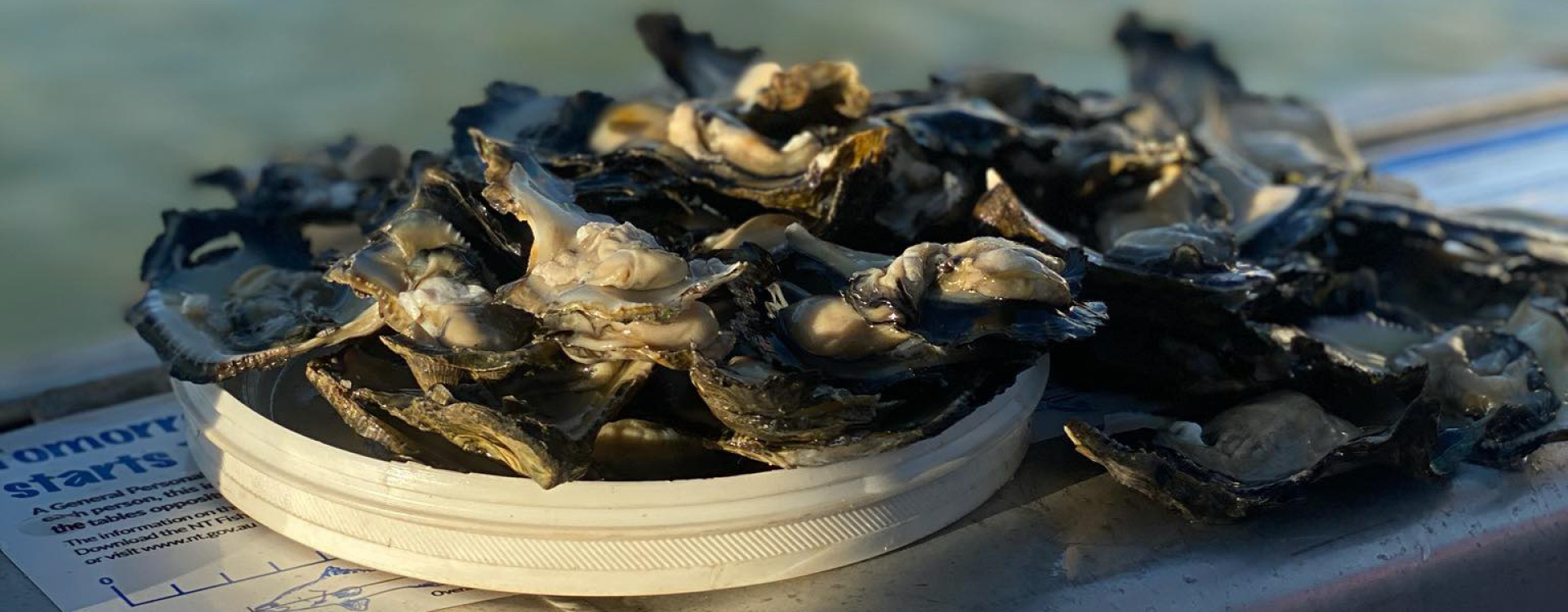
Aquaculture
The Aquaculture program consists of three major project streams which are being developed in conjunction with leading industry professionals and university led research partnerships. The three project streams consist of Tropical Rock Lobster, Black lip Oysters, and Trepang.
The collection of Tropical Rock Lobster larvae/Puerulus (Panilurus Ornatus) is a significant step forward in the development of a new enterprise opportunity for both Traditional owner led enterprise and in a broader context, the Northern Territory plan to rebuild and rebound.
Under the direction of Professor Clive Jones from James Cook University, The Lobster larval collection program has been approved by NT fisheries for a stage 1 survey, to analyse and assess the presence and quantity of Tropical rock lobster Puerulus in the Groote Archipelago. Pending outcomes of this Survey, harvested lobster Puerulus will be able to be grown out to marketable adult size for commercial export to domestic and international markets.
Dr Cathy Hair will be consulting to the ALC RDU Aquaculture program to assist with the planning for the development of a Trepang Hatchery, Nursery and sea ranching based Aquaculture enterprise. Dr Hair has a strong background in the development of sustainable trepang and aquaculture enterprise in indigenous communities throughout the Papua New Guinea and the South Pacific.
The predominant species of Trepang found in the GEA (Holothuria scabra) is a sought-after delicacy throughout South East Asia and is recognised for its Medicinal and dietary benefits, particularly in Mainland China, Hong Kong and Taiwan where its commercial value supports the development of this project.
In conjunction with the Darwin Aquaculture Centre (DAC), the ALC RDU is also conducting a trial program for the growing of Black Lip Oysters in targeted areas of Groote Eylandt. This project is a three year research program which is being coordinated between DAC the ALC Rangers to quantify growth rates and viability of the oysters for both domestic and export consumption.
It is expected that the Aquaculture Program will implement the results of research in to sustainable businesses in joint venture arrangements with leading industry partners.
